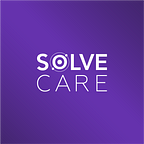Better Lives With Care.Wallet: Chronic Rhinosinusitis (CRS) in Korea
Chronic rhinosinusitis is an inflammatory disease of the paranasal sinuses, that can significantly decrease one’s quality of life. According to the study published by the National Library of Medicine, CRS affects 6.95% of people in Korea. A patient is determined to be suffering from chronic rhinosinusitis if they have at least two out of four symptoms, which are nasal drainage, nasal obstruction, facial pain/pressure, and hyposmia/anosmia, for a minimum of 12 consecutive weeks. In addition, physical examinations such as anterior rhinoscopy, endoscopy, or radiography from sinus computed tomography can be used to obtain objective evidence.
Treatment for CRS is often aimed at improving sinus drainage, enhancing mucociliary clearance, and treating local infection and inflammation. Initial treatment can consist of nasal saline irrigation or intranasal corticosteroid sprays, depending on severity. Antibiotics may be required for patients if the superimposed acute sinus infection is active. If all else fails, there is the option of a surgical treatment to CRS with endoscopic sinus surgery.
Care.Wallet can be configured to help doctors and patients monitor their health during chronic rhinosinusitis support and treatment. The ‘How Are You Feeling Today’ (HAYFT) Care.Card can be used to record their health changes, provide treatment feedback and get a quick reply from the doctor. Furthermore, through Care.Wallet, patients will be able to find the right provider, schedule appointments, and even request rides to get there. With Manage My Prescription Care.Card, patients and doctors can work together to find the best medication.
Care.Wallet can be set up to include all kinds of information including medical records, list of doctor appointments, and the prescription history all in one place. This will assist the physician in easily accessing all the necessary information so they can provide the correct course of treatment. This can include information such as medical history, a list of the patient’s allergies and the patient’s feedback on the medication they are taking.
Solve.Care is working on making healthcare more accessible than ever before. Did you find the above article interesting? Take a look at our previous article, Binge Eating Disorder in the US.
Keep up-to-date with all our latest announcements by following Solve.Care on Facebook, Twitter, LinkedIn, and Telegram.
Originally published at https://solve.care.
